|
|

Even given that I am no expert on the music of Kenneth Hesketh, my reaction on listening to Wunderkammer(konzert), the first album dedicated to his music was: ‘long overdue’. It seems curious that music of such obvious quality is not more widely recorded.
The disc, just released on NMC, contains three orchestral works – A Rhyme for the Season, Graven Image and At God Speeded Summer’s End – and two for large ensemble – Ein Lichtspiel for 17 players and Wunderkammer(konzert) for 13 players. The performing forces, the Royal Liverpool Philharmonic and Ensemble 10/10 (which is formed from the orchestra) reflect Hesketh’s Liverpudlian roots.
As a boy Hesketh sang at the cavernous Liverpool Anglican Cathedral. He has since remarked that the qualities of that building – especially its huge acoustic – led to his music being similarly bathed in a ‘generous sustained resonance’. This quality is everywhere apparent here. Musical figures drift and dart in and out of focus in dense and intoxicating textures, forming a disparate and yet somehow unified musical line. This is evident especially in the rich orchestral textures of At God Speeded Summer’s End or A Rhyme for the Season. This fondness for orchestral colour also owes something to Hesketh’s love of turn of the century Franco-Russian composers, a trait he shares with Oliver Knussen, whose Flourish for Fireworks may perhaps have have been a model for the arresting concert-opener A Rhyme for the Season.
As with Knussen, colourful and exuberant textures are, happily, channelled with clear-headed precision. Sometimes there are obvious structural markers, as in the return of the low percussion at the end of Ein Lichtspiel. Often, however, Hesketh impishly seems to prefer to keep the musical argument out of easy reach, and in doing so succeeds in making the ride all the more intriguing. Even where this is the case, though, there is always a sense of purpose, of pitch hierarchies being established and of material being worked through and developed.
There are many extra-musical associations to take in – the poetry of Dylan Thomas, Bauhaus period cinema, Cartesian philosophy, automata, medieval memento mori. One can choose to ignore them, of course, but they provide useful points of entry to the music and into a fascinating creative mind.
The recording and performance are excellent, the sleeve notes – which include a biographical note by Paul Griffiths – generous and informative. As with all NMC disks, the full recording is available on Spotify. There are also excerpts available on the NMC website. Highly recommended.
Other Releases
EMI has just released a new recording of Britten’s oft-maligned The Rape of Lucrecia. Its sparse sound world – more reminiscent of later works such as Curlew River – means it is unlikely ever to win the popularity of the opera it followed, Peter Grimes. The Aldeburgh Festival Ensemble and a marvellous group of singers under the sympathetic direction of Oliver Knussen make, however, a persuasive case for reappraisal.
Naxos’s survey of the music of Peter Maxwell Davies continues with new recordings of his Piccolo Concerto, Trumpet Concerto, Maxwell’s Reel, with Northern Lights and Klee Pictures. As with other discs in the series, these are conducted by the composer. Also on Naxos is a new programme of music by Alexander Goehr played by the London Sinfonietta under Oliver Knussen. It contains: When Adam Fell, Pastorals and Marching to Carcassonne.
Two recordings, finally, to watch out for. Previewed on NMC is a disc of music for voice and string quartet by Belfast-born composer Deirdre Gribbon. It will include her substantial works Island People and Crossing the Sea. The official release date is 11th March, though you can already listen to extracts on the NMC website. Deutsche Grammophon, on the other hand, are currently trailing a new disc entitled Pocket Symphonies by Sven Helbig. Slated for release on 22nd February, you can sample one track on Soundcloud, here.
0 comments

There are several events worth highlighting in February’s (newly updated) concert listings.
Total Immersion has been an enormously successful project over recent years, giving audiences a place to get to know music by some of contemporary music’s key figures. There is still time to get tickets for the latest in this series, featuring the music of Japan on 2nd February. The day focuses on the music of Toru Takemitsu, his contemporaries Akira Miyoshi and Toshio Hosokawa as well as that by next generation composers such as Dai Fujikura.
If you’re feeling the wintery lack of festivals, you should get yourself to Plymouth University, which is holding a four-day event beginning on 21st February. As well as creating a platform for music emerging from research, the Peninsula Arts Contemporary Music Festival will explore the theme of memory through both acoustic and electronic performances. There will be a number of premières, including new works by Mathew Slater, Alexis Kirke, Neil Rose & Shaun Lewin, Nick Ryan and Ignacio Brasa.
Not a concert, but interesting nevertheless, is a panel discussion to be held at Jerwood Hall, LSO St. Luke’s, London. Entitled Getting it Right, Julian Anderson will bring together leading figures in contemporary music including Mark-Anthony Turnage, Hans Abrahamsen, Steven Maddock, George Benjamin, Head of Composition at the Guildhall School Dr Julian Philips, Colin Matthews, Richard Causton and others, to explore the relationship between the Orchestra and the Composer.
As with Britten, 2013 marks the 100th birthday of Polish master Witold Lutoslawski (the exact birth date fell on January 25th). For those wishing to follow his birthday celebrations there is a new app for iOS entitled100/100 Lutoslawski. There’s not a lot to it, but it does contain a very handy day-by-day list of concert events during the year. So far this covers until the end of June, though more events will be added soon.
0 comments

A retelling of Benjamin Britten’s last years in yesterday’s Telegraph brought a tragic note to his centenary celebrations. The article was an extract from Paul Kildea’s new biography: Benjamin Britten: A Life in the 20th Century, not yet published.
I always understood that Britten’s heart condition, which eventually led to his heart valve being replaced in 1973, was congenital. That the operation didn’t cure the problem just seemed appalling bad luck, the stroke he suffered under the surgeon’s knife one of fate’s twists of the knife. Kildea, however, claims to have new information: that when the surgeon Donald Ross opened Britten’s chest he discovered ‘his aorta was riddled with tertiary syphilis’. Unfortunately, Britten had been chosen for a tissue valve which, given the state of his heart, could not be made to fit well. This might have been different if a mechanical valve had been used. As a result his heart functioned no better after the operation, which led to his continuing decline and death.
As to the origin of the disease, Kildea I think is right to point out that it is most likely that it came from Pears, who, unlike Britten, was known for his philandering. Pears was one of the men who could contract the disease whilst remaining symptom-free. A sad irony points out Kildea, is that ‘it left Britten, the more puritanical of the pair, with a sexually transmitted disease that slowly ate away at his heart, his [Pears’] bad behaviour increasing as his [Britten’s] health deteriorated’. Perhaps saddest of all was that in the 1940s, Britten could have been completely cured by a course of the new drug penicillin. By the time of the operation, even given the choice of a different heart valve, it was essentially too late to consider a complete recovery.
0 comments
The Britten centenary is marked this month by a couple of new discs of his cello music. Around Britten on Signum Classics features cellist Matthew Barley and includes Britten’s Third Suite for Cello, folksong works that Barley has re-arranged for his instrument as well as music by John Tavener and Gavin Bryars. The release also marks the beginning of a tour by Barley that will take Britten’s music to galleries, cafes, cathedrals, the library of Red House in Aldeburgh and even to a wood in Devon. Also specifically to mark the beginning of the Britten Centenary celebrations is a two-disc release on Hyperion with cellist Alban Gerhardt. This contains his Symphony for Cello and Orchestra, Sonata for Cello and Piano in C, Cello Suites 1-3 and Tema Sacher.
Continuing the cello theme, Wolfgang Boettcher has recorded a programme entitled Twentieth Century Works for Solo Cello on Nimbus. It includes works by Hindemith, Krenek, Dallapiccola, Ligeti, Lutoslawski and others. Similarly, on Decca cellist Alisa Weilerstein’s debut with the Staatskapelle Berlin includes a recording of Elliott Carter’s Cello Concerto. In a significant new release on DG, Esa-Pekka Salonen and the Orchestre Philharmonique de Radio France have recorded three important works by near-centenarian Henri Dutilleux: Correspondances, for soprano and orchestra; Tout un monde lontain, for cello and orchestra; and The Shadows of Time, 5 episodes pour orchestre.
There are four new recording of interest on Naxos. In their Latin American Classics series is a two-disc set of music by Mozart Carmargo Guarnieri, who, after Villa-Lobos, was the most important Brazilian composer of his generation. It contains Pontelos, Books 1-5, Suite Mirim and his Piano Sonata. The second volume of the survey of Rodrigo’s guitar music is also released this month. Played by Jeremy Jouve, it contains a selection from his works for solo guitar. Also in a continuing series is the release of Maxwell Davies’s Piano Concerto and Worldes Bliss with the Royal Philharmonic Orchestra under the baton of the composer. Finally there is a recording of James Whitbourn’s moving Annelies, a choral setting based upon The Diary of Anne Frank, performed by Westminster Williamson Voices, Arianna Zuckerman (soprano) and The Lincoln Trio under conductor James Jordan.
0 comments

My home office setup. The computer is that elegant little box to the right of my main monitor.
Many composers I talk to, even if they use a Windows PC, express an interest in swapping to Apple Mac. That was certainly my experience when I asked several composers to write here about using computers when composing. Apple computers, say the fanboys, are more intuitive, not prone to viruses, work better if you are already part of the Apple ecosystem, and, of course, they look rather pretty. The detractors argue that they are expensive, have less software, are, in actual fact, no more easy to use than Windows, and leave you less able to interact with the rest of the, mostly Microsoft, world.
I bought a Mac Mini before Christmas as a replacement for my ageing Windows 7 PC. There was no doubt that I was attracted to the prettiness of Apple computers, especially the edge-thin new iMac. In fact, I’d waited for months for the release of the new all-in-one desktop. Unfortunately, when it appeared it was £100 more than I had expected, and this finally persuaded me against it. It was, indeed, too expensive.
For those abandoning Windows PCs, however, there is another excellent option. For £499 you can get a bottom of the range Mac Mini. This means you have to supply your own keyboard, mouse, monitor and even DVD drive, but you still end up with the full Mac experience. I went for the slightly more expensive Mini: the quad core, 2.3GHz version with 1TB hard drive for £679. I wanted a bit more grunt for running Sibelius Sound Library. Buying a Mini also had one other advantage. With the exception of the expensive 27-inch iMac, all other flavours of Mac apart from the Minis come with memory that cannot be changed. This means you can upgrade the memory only when purchasing. Unfortunately, buying memory from Apple is like buying a cup of tea from Claridges: expensive but not discernibly better. I also had no idea how much I’d need. I could have ended up spending a fortune upgrading the memory, with no discernable benefit, or not putting in enough and permanently crippling my system. A Mac Mini comes with 4GB of memory that can be expanded by the user to 16GB. This allows you to upgrade when you see the need.
My next worry was how compatible it would be with all of my old Windows peripherals. Would I face another expense as I replaced my old USB external hard drives, keyboard, mouse, scanner, USB mini piano and even an old external CD/DVD drive? In fact, they all worked perfectly. The keyboard (for writing, not playing) was a bit odd, since some of the keys were in different places, but there are various tweaks you can make with free software, and it is now much like my old Windows keyboard. There is one glorious exception to this, however: the Windows key no longer does anything, This, for me, is a huge boon whilst using Sibelius; it used to drive me mad when I accidently hit the Windows key instead of Alt or Ctrl and the Start Menu popped up.
It would be unfair of me to compare the performance of my new machine to my Windows PC. That was very old indeed, so it will come as no surprise to say that the new Mac is smooth and fast. For those used to Windows 7 I would say that transferring to OSX10 is quite painless. They share an awful lot in common. Windows Explorer and Mac Finder are quite similar (though I still prefer Explorer I must admit), so too are the Taskbar and Dock. There are the same concepts of desktop, trash and so on. You won’t be able to use Internet Explorer, though there are so many excellent browsers now that that hardly matters. The real benefits of Mac come when you have already bought into the Apple ecosystem. I already owned an iPhone. This seamlessly integrates with the Mac. If I type a note, it appears on my Mac. If I take a photo, it appears on my Mac. An open tab on my phone appears on the desktop. And so on and vice versa. Cloud technology isn’t, of course, exclusive to Apple but Microsoft is a long way behind with integrating their phone and tablets in Windows 8, an operating system that has anyway had mixed reviews.
I use two programs more than any other on my computer: Sibelius and Word. If you are a light user of Word, you could opt for Apple’s Pages, which is much cheaper than Microsoft’s software and offers some compatibility with it. I prefer to use what everyone else has, and so bought the Mac version of Word from the outset.
The good news with Sibelius is that, from day one, the shipped software has supported both operating systems. I bought Sibelius 7 for my Windows PC, so I could install it on the Mac without further expense. On the old computer I couldn’t run the Sibelius Sound Library at all, so had to stick with general MIDI. Interestingly, even on a computer that, by any measure, is powerful, my new Mac will only run smallish scores with the Sibelius Sound Library. This leads me to think that I will, indeed, need to buy more memory. The sounds also load quite slowly on a spinning hard drive, so, if you can afford it, I would go for a Mac either with an SSD drive (like those used in phones: they are very fast but hold less data) or a Fusion Drive (which combines SSD with older technology to make a drive that is both fast and capacious). I could have specified a Fusion Drive on my Mac Mini for an extra £200. Again, it was too expensive…
The only other music programme I missed from my PC was Sound Forge, which allowed me to edit sound files in preparation for burning CDs or putting them on my website. Audacity, however, is a wave editor that, it turns out, is rather better than the version of Sound Forge I was using. It is also free. Mac also, finally, ships with a rather good MIDI sequencer in the form of Garage Band. It’s not aimed at professionals, but for those who occasionally dabble it’s a decent solution, and integrates with versions on iPad and iPhone.
In conclusion, whether you move to Mac or not (or, indeed, are on Mac and are considering moving to Windows) will increasingly depend on other factors, especially how much you value integration with the other technology, such as phones and tablets. I think other oft-quoted factors are less important. Viruses are an increasing problem on Macs and, actually, with proper precautions never gave me a serious problem in more than ten years of Windows PC use. Neither would I say that OSX is particularly ‘easy’ or ‘intuitive’ compared to Windows 7. They are very similar. Apple computers are definitely pretty but, in all honesty, I tend to forget about the ergonomic lines of a monitor when I am hard at work. And my office is always such a mess that a sleek iMac would probably ruin the look.
The fact of the matter is, both Windows and Apple desktop systems are incredibly capable and have all of the music software you will ever need. In my opinion, however, Apple, because of its tradition of building both software and hardware, has a much better integrated ecosystem. My iPhone and Mac speak effortlessly to each other. If you are an Android user, the Apple vs. Windows matter is more open. Google do offer a third alternative in the form of their Chromebook. This runs entirely on the Internet, however, and so offers few useful programs for musicians. Until Microsoft can shift more phones and tablets and convince the world that Windows 8 works, I remain convinced that moving to Apple Mac was the right decision for me.
0 comments

Happy New Year to you all! If you’re feeling over-indulged on ample sufficiencies of turkey, Christmas pud and mince pies, here’s a repast of a different sort: my preview of what is in store for contemporary music over the next twelve months. Bon appétit!
January
18th Qigan Chen London premiére of Reflet d’un temps disparu and world premiere of Raymond Yiu’s The London Citizen Exceedingly Injured. Barbican, BBCSO conducted by Long Yu.
27th Concert of Copland, Carter, Ives and John Adams. LSO/St Lawrence String Quartet conducted by John Adams. Barbican, London.
February
2nd Total Immersion: Sounds from Japan. Concerts, talks and films exploring the rich Japanese contemporary and traditional music scenes. Barbican, BBCSO and friends.
9th Huw Watkins Day. Featuring chamber works by the composer. Elias String Quartet. Wigmore Hall, London.
15th David Sawer Flesh and Blood (world première). BBCSO conducted by Ilan Volkov. Barbican, London.
15th Richard Baker The Tyranny of Fun (world première). BCMG conducted by Ryan Wigglesworth. CBSO Centre, Birmingham.
22nd Peninsula Arts Contemporary Music Festival. Roland Levinsky Arts Building, Plymouth.
26th-27th Repeating Patterns: the start of US minimalism. A concert in the London Sinfonietta's Landmarks series focusing on an introduction to the world of minimalism. London Sinfonietta. Purcell Room at QEH, London.
March
4th Composition: Wales. A day of workshops followed by premières of composers working in Wales. BBCNOW. BBC Hoddinott Hall, Cardiff Bay.
9th Stuart MacRae Earth (world première). BBCSSO conducted by Martyn Brabbins. Candleriggs, Glasgow.
9th Total Immersion: New from the North. A celebration of the best new music from Finland and Denmark. BBCSO and friends. Barbican, London.
14th Unsuk Chin New Work, Joseph Pereira Concerto for Percussion and Orchestra (European première). LA Phil New Music Group conducted by Joseph Pereira. Barbican, London.
16th John Adams European Première The Gospel According to the Other Mary. LA Phil. Barbican, London.
16th-24th Lucerne Festival at Easter. Lucerne, Switzerland.
April
6th George Benjamin Day. Chamber works by the composer. Various performers. Wigmore Hall, London.
9th LSO Futures Week: Tansy Davies. The music of Tansy Davies features in this Eclectica concert, the first event of LSO Futures Week. LSO. St. Luke’s, London
13th Future’s Week continues in two events that include world premières by Jason Yarde and Colin Matthews. LSO conducted by François-Xavier Roth. Barbican, London.
23rd-30th Mopomoso on Tour. Mopomoso On Tour - 21 years of the best in UK free improvisation
May
9th-18th Vale of Glamorgan Festival. Includes world premières by Aaron Kernis, Galina Grigorieva, John Metcalf and Mark Bowden. Various venues in Glamorgan, South Wales and Arts Hall, Lampeter.
12th-2/6 Prague Spring International Music Festival.
17th Jonathan Lloyd New Work for Winds (World Première). BBCSO conducted by James Gaffigan. Barbican, London.
22nd In Portrait: Luke Bedford. A concert that includes two premières from the composer. London Sinfonietta. Purcell Room at QEH, London.
Also in May (date not yet available):
Sounds New Contemporary Music Festival, Canterbury.
June
7th-23rd Aldeburgh Festival. Featuring world premières from six leading international composers: Harrison Birtwistle, Magnus Lindberg, Wolfgang Rihm, Richard Rodney-Bennett, Poul Ruders and Judith Weir. Snape Maltings, Aldeburgh.
20th-27th St Magnus International Festival. Orkney Islands, Scotland. 2013 programme available in March.
27th- 31st/7 Munich Opera Festival. Includes music by contemporary composers. Nationaltheater and other venues in Munich.
30th-13th/7 Soundscape. Festival of new music with composer in residence Dan Visconti. Maccagno, Italian Alps.
Also in June (date not yet available):
Elektrostatic Contempoary Classical Festival. Arnolfini and Colston Hall 2, Bristol.
July
4th-21st Manchester International Festival. A biennial event. Various venues, Manchester.
5th-21st Buxton Festival. Programme not yet finalised but some details available on their website.
6th-25th/8 Schleswig-Holstein Musik Festival. This year focusing on the music of the Baltic States. Various venues, Schleswig-Holstein, Germany.
12th-7th/9 BBC Proms. Website currently showing 2012 programme, but there will be guaranteed premières aplenty. Royal Albert Hall, London.
15th-27th High Score Festival. Contemporary music festival and classes. Pavia, Italy.
Also in July (dates not yet available):
‘Aix en Provence Festival. Some details already available on the website, including The House Taken Over, a new opera by Casco Mendonça. Full programme available January 24th.
Tête à Tête Opera Festival. Rightly described as ‘our most imaginative opera laboratory’, the festival focuses entirely on new music.
August
4th-10th Sound and Music Summer School. The Sound and Music Summer School is the only UK residential course of its kind for young composers (aged 14-18). Purcell School of Music.
9th-1st/9 Edinburgh International Festival. The world famous festival’s full programme will be announced in March.
21st-27th Presteigne Festival. Artistic innovation, musical discovery and, of course, new works in the Welsh Marches. Presteigne, Powys.
September
5th Olso Contemporary Music Festival. Beyond the opening date, few details available on the festival website. Oslo, Norway.
5th-5th/10 Beethovenfest. Programme available in March. Bonn, Germany.
Also in September (date not yet available):
Warsaw International Festival of Contemporary Music. Still showing 2012 programme. Warsaw, Poland.
October
10th-13th Arcomis International Brass Event. Concerts that contain new music as well as masterclasses, workshops and seminars. Will include sessions led by composers, top brass players and ensembles. Various locations in Cardiff.
Also in October (dates not yet available):
Festival Internacional de Música Contemporánea de Tres Cantos. Contemporary music festival in Madrid, Spain.
Sound. North East Scotland’s Festival of New Music. Various venues.
Wien Modern. Festival that focuses on contemporary music. Still showing 2012 programme. Vienna, Austria.
November
16th-24th Lucerne Festival at the Piano. A long way ahead, but many details now available on the festival website. Lucerne, Switzerland.
0 comments
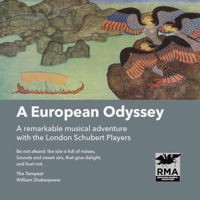
If you buy one CD set this month or, for that matter, over the next twelve, you should consider A European Odyssey, A remarkable musical adventure with the London Schubert Players. Released on Nimbus, the three-disk set is the fruit of the Invitation to Composers project that, since 2009, has challenged composers to write new works in response to established European chamber pieces.
Invitation to Composers was developed by pianist, founder and Artistic Director of the London Schubert Players, Anda Anastasescu. It has had two incarnations. The first ran from 2009-2010, the sources of inspiration being works by Schubert, Mendelssohn, Saint-Saëns and Messiaen. The second, from 2010-11, used George Enescu’s Chamber Symphony for 12 Solo Instruments as well as works for unusual combinations of viola solo, piano solo and strings and soprano, piano and strings. The chosen compositions were work-shopped and performed in a series of events in the UK, France and Romania.
The scope of this marvellous project was too large to make a complete survey of all the works performed, but this collection gives a generous selection. On disc one there are three of the inspiration works: Mendelssohn’s epic Concerto for Violin, Piano and Strings, Saint-Saëns’ Septet op. 65, remarkable for its inclusion of solo trumpet, as well as the aforementioned Enescu, a work of searing introspection. The subsequent two disks contain 14 of the works written in response to the models, not just to those on disc one but also Messiean's Quatour pour la Fin du Temps, Schubert's Trout Quintet and two based upon the viola solo, piano solo model. The composers represented are from all over continental Europe and beyond and of all ages. The styles too are satisfyingly diverse; it is clear that scores were chosen simply on compositional merit and without stylistic preconceptions. On the one hand, for example, there is Ana-Maria Avram’s imaginative rendering of Ten Romanian Songs from Bela Bartók’s collection. Full of attractive tunes, often presented with witty panache, it is easily accessible without dumbing-down. On the other there is the eerie nocturnal world of Eberhard Eyser’s The Nightingale was Singing all Night Long or Adina Dumitrescu’s bracingly uncompromising J’ai trouve les Histoires. Some of the recordings are live, some made in the studio. All are excellent, though inevitably the live recordings are a bit more prone to extraneous noise.
For those who might lament the passing of such a brilliant project, the good news is that Anastasescu is planning a sequel to Invitation to Composers, to take place throughout 2014-2015, subject to securing funding. This will, of course, be of interest to users of this site. I will, therefore, return to this as more information becomes available.
The rest of the month’s releases
Despite the concentration on yuletide frolicking, there are a few other noteworthy releases this month. Chandos has issued new recordings of Karol Szymanowski’s Symphonies No. 2 and 10 with the BBC Symphony Orchestra conducted by Edward Garder. It forms part of their ongoing Polish series that includes, for example, an excellent survey of the music of Witold Lutos³awski. Naxos, as ever, has produced three important additions to its contemporary music catalogue: a programme of chamber and orchestral music by Chinese-born American Lei Lian; a selection of choral music by John McCabe performed by the BBC Singers conducted by David Hill; and, finally, Alla Pavlova’s Symphonies No. 7 and 8 performed by the Lithuanian State Symphony Orchestra under Gintaras Rinkevicius.
0 comments
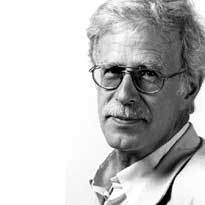
Mortuos plango, I mourn the dead. Though annus horribilis is, perhaps, an exaggeration, the grim reaper has done his work unusually well in 2012. This has especially been the case in the last three months.
In October we lost Hans Werner Henze, who left behind some two-dozen operas and a bewilderingly diverse range of other music, drawn together only, perhaps, by his commitment to left-wing socialist politics. Elliott Carter followed him in November. In his case we had much to be grateful for, since, not only was he granted longevity, but a creative energy that lasted into and beyond his hundredth year. Dave Brubeck died at the beginning of December. Whilst not a classical composer, the reassessment of Jazz as a high art form has led to him receiving renewed recognition as a creative artist. On 11th December we lost both Ravi Shanker and Galina Vishnevskaya. Most famous as a player of the sitar, Shanker was a composer too (not just in the improvisatory sense), having written music for films as well as a concerto for his instrument. He will also be remembered as a key influence upon George Harrison and Paul McCartney. Russian soprano Vishnevskaya was, with her husband Mstislav Rostropovich, a great friend of Benjamin Britten. Most famously, he wrote the soprano part of the War Requiem for her, though the Soviet authorities would not let her attend the première (she later recorded the work with Britten).
The day before Brubeck, on 4th December, we lost Jonathan Harvey. Compared to the others, his death felt different: at 73 he was much younger, so it was easier to imagine what might have been had he been granted a little longer.
My own introduction to the remarkable sound world of Harvey was through his Ricercare una melodia for trumpet. I was a student at university casting around for a piece to play for my second year recital. The work serves as an excellent example of his ability to write music that miraculously ticks all the boxes. It consists of a solo trumpet playing into a microphone connected to two four-track tape delays. As the soloist plays he canons with his musical line as it is played back in four parts. There is a twist, however, when the speed of one of the delays is altered so that the musical material is displaced by an octave, then by two and so forth. At the end the counterpointing parts disappear into the depths. The effect is mesmerizing.
Hearing and playing the piece was a watershed moment for me. At the time I was struggling to come to terms with avant-garde music. It seemed to make no sense to my ears, often feeling grey and diffuse. Ricercare was a stepping-stone to a more profound understanding of music. Like his much more famous Mortuos Plango, Vivos Voco (I call the living, I mourn the dead), whose title so aptly describes the last few months, Harvey had the uncanny knack of writing cutting-edge music that spoke directly to the heart. He will be greatly missed.
There have already been useful obituaries of the composer that are viewable online at the Telegraph, Guardian or Independent websites. There is also an excellent interview biography by Daniel Jaffé on this site. It was not my intention to add to them here. I have, however, been able to glean a small amount of information about his early life that does not seem to be readily available elsewhere. I got this from my father, who was at school with the composer. The Guardian, for example, has Harvey composing from the 1960s. Jaffé says from the age of six without giving further specifics. What is certain is that Harvey was active as a composer whilst a schoolboy at Repton. In 1957 Eric Maschwitz was commissioned to write a drama, entitled A Masque of Schollers, to celebrate the school’s quatercentenary. My father remembers this. As well as music from old Reptonians, it included contributions from Harvey, who was still a pupil. The two movements, Poor Tom and Old John of Etwall, were played, it seems, by the Harvey Trio, which presumably he formed whilst there. He also wrote and played a piece for cello in 1956.
0 comments
Last year I speculated as to why contemporary music and Christmas don’t mix; as we enter the festive month performances of new music decline as caroling and yuletide cheer take over. This year is no different, though there are a few concerts in CT’s concert diary worth noting.
At the beginning of December there is a mini Britten festival at Wigmore Hall as part of the Britten at 100 celebration. It includes a concert of song cycles on December 1st; the complete string quartets on December 3rd; and Les Illuminations, Lachrymae and Serenade on December 4th. In New York City the 28-year-old Composers Concordance Festival starts today, running for five concerts until 7th December. There are a large number of living composers represented: more details are on the festival’s website. On 14th December at the Barbican Hall there is screening of Godfrey Reggio’s time-lapse cinematic vision of American Cities, Koyaanisqatsi, set to a new arrangement of Philip Glass’s film score. The website is reporting this as sold-out, though the old adage of turning-up on the night might pay dividends for the determined. Surprisingly deep into the festivities, on 20th December, Nonclassical, finally, is presenting a night of new music commissioned from six composers as part of the ‘Freedom From Torture Presents’ event, as well as Gyorgy Kurtag’s masterpiece Kafka Fragments.
0 comments
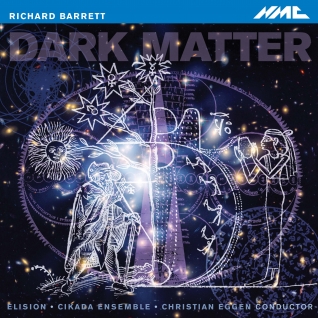
If you like your music cerebral and challenging then you should check-out Richard Barrett’s bewitching new CD Dark Matter. It features the ensembles ELISION and CIKADA conducted by Christian Eggen with mezzo-soprano Deborah Kayser, Carl Rosman on clarinets and Dary Buckley on electric guitar. The work is a profound rumination on the nature of being, ‘a response to the current state of scientific knowledge and speculation about the nature of the universe and of human consciousness’. It sets some of the oldest religious texts in existence, including the ancient Egyptian creation myth The Empire of Lights, whose striking opening eerily (or not, I suppose, since many creation myths share a common origin) evokes Genesis. There is, as the composer points out, no consolatory message in the work: no answers, only questions. In this way the work represents the nature of existence itself.
The musical language evokes Varese, Stockhausen and others, but also has a kind of paired down asceticism that reminded me of Britten’s Curlew River. It is, as the composer admits in an interview with with Daryl Buckley, a ‘rather forbidding landscape without signposts’. This is, however, part of its ruminatory message. For those interested in the interface between visual art and music, you’ll also want to have a look at the performance of the work as an extraordinary installation with artist Per Inge Bjørlo, partly available (it is interspersed with interviews) on YouTube.
The rest of the month’s releases
Naxos has released a five-disc set entitled American Spirit that focuses on some of the defining moments of its decade-long American Classics project. It includes music by Charles Ives, Peter Boyer, Hannibal Lokumbe, Virgil Thompson and many others. They have also released a disc of Asian Music played by the New Zealand String Quartet. It contains Long Zhou’s Song of the Ch’in, Chinary Ung’s Spiral III, Ping Gao’s Bright Light and Cloud Shadows, Toru Takemitsu’s A Way a Lone and Tan Dun’s 8 Colors. There are three new discs featuring the major ballet music of Stravinsky, all performed by the Seattle Symphony Orchestra under Schwartz: The Firebird, Petrushka and The Rite of Spring; and a new recording of Wolfgang Rihm’s complete music for violin and piano with Tianwa Yang (violin) and Nicholas Rimmer (piano). Finally on Naxos, the Maxwell Davies symphony project continues with the composer conducting a performance of Symphony No. 6, Time and the Raven and an Orkney Wedding with Sunrise, with the Royal Philharmonic Orchestra.
On Nonsuch there is a new Blu-ray and DVD release of John Adams’ Nixon in China, featuring Peter Sellars’ Metropolitan Opera production that was broadcast around the world in cinemas as part of The Met: Live in HD on February 12th, 2011. They have also released Jonny Greenwood’s soundtrack for the film The Master. I became a Greenwood fan after hearing his fabulous score for There Will Be Blood. This one, though interspersed by performances by Ella Fitzgerald, Jo Stafford and Helen Forrest, is no less worth checking out.
0 comments
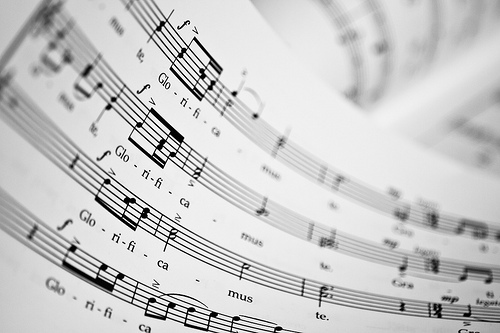
That the internet has revolutionized the consumption of recorded music is a truism. Artists can self-publish via their own websites or they may circumvent record labels by going directly to download services like iTunes, Amazon or Spotify. This is a trend that has long-since spread to more commercial forms of sheet music on websites such as musicnotes.com.
Composers of contemporary classical music, however, just don't have the profile to promote their music simply by putting it on their website. For this reason most would prefer to win a traditional publishing contract, leaving the sales and promotion to someone else. Failing this, however, the iTunes model does have much to recommend it; a composer may make his or her music available in a place that already receives 'footfall', without having to have it accepted by an intermediary. So what are the options for composers seeking to make their music available in this way?
Sheetmusicplus.com
Perhaps the biggest player to enter this field is Sheet Music Plus. They already have many thousands of sheet music buyers and recently opened their website to self-publishing composers. All the detail is laid out, here. The bottom line is that participating musicians earn royalties of 45% of the list price of their sheet music once their account reaches a $20 minimum. Composers retain the rights to their music; I spoke to a representative, who said: 'the composer has full control over his or her piece. They can choose to sell on our site and then work with any other organization and or publishers to sell it through them. And if for any reason they need to stop selling a title on our site, they just click 'delete' in the Manage Title section and the piece will be removed...within seven business days.'
Arcomis.com
I interviewed the director of Arcomis, Adrian Hull, on this website some time ago. They specialize in connecting the general public to the arts by helping with the commissioning process. They are particularly expert in the field of contemporary music, the director himself being a composer and director of the London Contemporary Music Group. They offer a similar self-publishing service as Sheet Music Plus. Whilst submission of scores is currently free there may, however, be a small submission charge in future. Composers earn a royalty of 50% of any profits they make once their account reaches £25. Like Sheet Music Plus, a composer retains complete control over his or her music. Whilst these terms are similar, it should also be noted that Arcomis scores are proofed by professional copyists before being published online. Arcomis also promote their catalogue to arts organizations and though their Arcomis Live concerts. Their International Flute Event, for example, attracted some of the world's best players, resulting in broadcasts on Radio 3 and a spin-off flute album.
Composers Edition
Composers Edition is a newer enterprise that will concentrate solely on providing editions of contemporary music. The store of composers' music is not, as yet, live. Composers will receive a profile and each work will be presented in its own web page with details such as forces, duration and programme notes. Like Arcomis and Sheet Music Plus the composer retains complete control of the music. The site will make versions of the works available in both print and downloadable versions, the terms being: 'The composer get [sic] a return of 20% of the UK retail price on printed document sales and 30% of the UK retail price on digital download sales.' Though this looks mean set alongside the other two services, especially considering that scores are not even proofread before being published on the site, I happen to know that the service has received some interest from composers. So it might still be one to watch.
Also worth considering
Score Exchange is the successor to the now defunct SibeliusMusic.com, which was a self-publishing site for composers solely using Sibelius software. For a limited time they are allowing users of the old site to transfer all their music to the new one. Publishing works on the site is free, whilst the composer receives 30% of the sale price, as well as retaining complete control over their works.
For composers looking for maximum exposure and who don't care at all about making money or promotional issues, IMSLP hosts a growing range of contemporary composers' works. The submission process is outlined in their FAQ.
3 comments
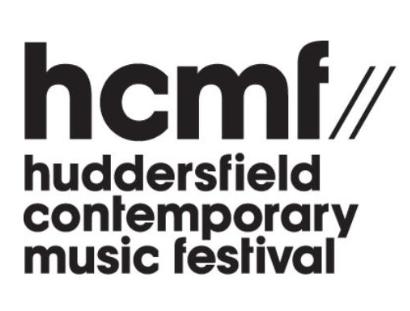
I've just updated CT's concert diary for November. A few things, however, deserve special mention.
The Huddersfield Contemporary Music Festival, the UK's largest specialising in this genre, runs from Friday 16th-Sunday 25th November. This year's composer in residence is Norwegian Maja S K Ratkje. You can find out more about her on her website, www.ratkje.com, via her Soundcloud feed or on Spotify. The full programme for the festival, which consists of more than fifty concerts and events, can be viewed here.
Oliver Knussen turned 60 in June and, by way of celebration, his music is to feature in a BBC Total Immersion day on 4th November at the Barbican. It starts at 1.15 and consists of three concerts: one to be given by Guildhall New Music Ensemble; another featuring Huw Watkins, Ryan Wigglesworth and Alexandra Wood; the last, at 8pm with BBC Symphony Orchestra. They will play a total of 17 works, including his Whitman Settings, Violin Concerto and Symphony No.3. The man himself will be there, including for a film and discussion about his music at 3pm. It promises to be a fascinating day.
Something that might also interest readers here is a musical retreat entitled 'The Sun Always Moves West', to be held at Dewsall Court, Herefordshire from Friday 9th November to Sunday 11th. It celebrates the lives of composers touched by the Great War - Elgar, Vaughan Williams, Holst and Bridge - and whose influence can still be felt today through their work as composers and teachers. There will be a concert given by tenor Stuart Jackson, violinist Ben Hancox and pianist Anna Tilbrook; an exploration of the poetry of the time; a debate entitled 'The Psychology of Song'; and an act of Remembrance on Armistice Day. More details can be found on their website or by emailing Samantha Vaughan.
0 comments

I noticed with a sense of both amusement and nausea yesterday that EMI, a label that I used to follow avidly, has stooped to releasing Fifty Shades of Grey, The Classical Album. The webpage, to which I’m not going to put a link – why promote this nonsense – contains a preamble from the author saying how ‘thrilled’ she is about it (I wonder what her cut is?) followed by some nonsensical spiel about the album ‘setting a mysterious and alluring atmosphere with just a hint of danger.’
I suppose it is easy for musicians to sneer at this sort of thing. Many of us had a eureka moment when we realised that classical music moved us just as much as, if not more than, popular music. Mine came when a friend of the family bought me Dvorak’s New World Symphony when I was seven or eight. Perhaps it is possible that someone will have a similar kind of road to Damascus experience when listening to this CD.
The most popular forms of classical music have long been taken advantage of by the marketing people. I noticed the other night, for example, Tchaikovsky’s Waltz of the Flowers being used on the channel Dave to advertise their Redbull X Fighters. It was quite droll and made me smile. The same might be said of other adverts: Stella Artois (Verdi Forza Del Destino Overture), British Airways (Delibes Flower Duet from Lakme), Hovis Bread (New World Symphony!). Music used in this way can be a powerful tool for teachers when introducing children to classical music. Something ‘boring’ is made accessible. It is then for the teachers to add context, showing that there is more to the music than the thing to which it has become attached. Fifty Shades of Grey, however, is a book for adults. And, in my opinion, releasing such a compilation disk not only infantilises adults by assuming that they can’t find these works for themselves, it also cheapens great works of art by association.
What might, however, be easier to defend, would be the use of such marketing ploys in order to make money as a means of pursuing worthier projects elsewhere – here I am, of course, thinking of new music. Naxos has done this with compilation disks of music from adverts. The big record labels are increasingly, however, a lost cause for living composers.
So it is with EMI this month. Whilst there’s nothing else that plums the depths of Fifty Shades, their releases are wearyingly predictable. There’s Bizet’s Carmen, Nielson and Tchaikovsky Violin Concertos, some Vivaldi and Beethoven and several compilation disks: Great Cello Concertos, Rodgers and Hammerstein at the Movies and Maria Callas – The Studio Recordings. The one ray of light, but one that is still decidedly mainstream, is a disk of Brahms and Berg Violin Concertos with Renaud Capucon and the Vienna Philharmonic.
Naxos, on the other hand, completely outclasses the full price big boys. There is a new recording of Chen Gang’s Yellow River Concerto and (written with He Zhanhao) The Butterfly Lovers Concerto with the New Zealand Symphony Orchestra; a programme of American trumpet music featuring works by Leo Eylar, Steve Rouse, Robert Starer and Stephen Sondheim; Gabriel Jackson’s Requiem and other works with the Vasari Singers under Jeremy Backhouse; and Tan Sun’s Concerto for Orchestra, Symphonic Poem of 3 Notes and Orchestral Theatre with the Hong Kong Philharmonic under the baton of the composer.
Elsewhere things are relatively quiet. There’s a handy new page on NMC featuring all of the 20x12 composers. I’ve already written extensively on this project, but do pay a visit if you haven’t already. I also very much enjoyed browsing NMC’s annual review document, which is a great reminder of the excellent work done by the record label.
I will also mention a disk that I didn’t notice when it first came out, but have since enjoyed a great deal: John McCabe’s Rainforest I and II on the Dutton record label. McCabe is a composer well worth checking out; he seems to manage the uncanny trick of being adventurous, lucid and accessible all at the same time. It also features the violinists Harriet Mackenzie and Philippa Mo, who together make up Retorica, performing his Double Concerto Les Martinets Noirs. I reviewed their brilliant debut disk in September and their playing is no less engaging and assured here. Look out for an interview with them on CT, coming soon.
0 comments
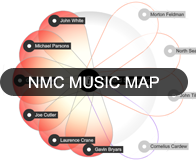
For a bit of Friday fun why not take a look at NMC's Music Map , an interactive application that explores links between composers? It launches with the composer you have chosen placed in the centre of the screen. Surrounding him or her like petals you will see others with whom the composer shares stylistic links. There is also a petal that shows who taught the composer and surrounding the 'flower', this time like orbiting planets, is a summary of the composer's style. In the bottom left is a panel to listen to musical extracts. Perhaps the most fun to be had, however, is by clicking on composers to make a 'musical map journey'. Rather like the six degrees of separation theory, it can provide some interesting links. It is possible, for example, to get from the lush tonal conservatism of Elgar to the integral serialism of Milton Babbitt, the composer who once wrote a paper entitled 'Who cares if you listen', in just four steps: via Anthony Payne, Elisabeth Lutyens and Robert Saxton. Inevitably there is a certain degree of subjectivity in the links but it makes for an interesting way of discovering new music.
0 comments
Apart from individual concerts, just updated here, there are several important festivals this coming month. As ever, I've not included concerts from these festivals in the main round-up. Instead follow my links to festival websites below.

The Festival Internacional de Música Contemporánea de Tres Cantos takes place in Madrid from October 6th to 28th. The programme concentrates on the music of Spanish composers, though there are also performances of works by Alfred Schnittke, Elliott Carter, Maxwell Davies and Arvo Part.
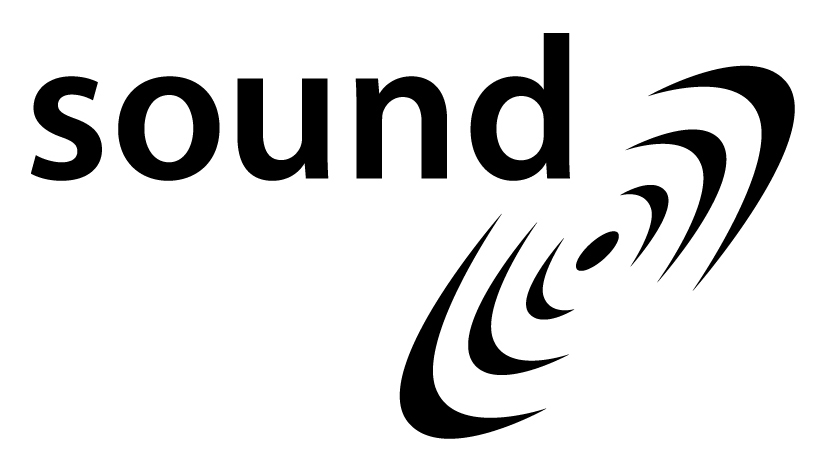
Sound, which takes place in a number of venues in North East Scotland, has become, since inception in 2005, a vital and thriving place to experience new music. Among the highlights this year include a 4-day programme of opera, with performances taken out of the theatre and staged in more unusual venues; the finale of the Three Cities Project (linking Aberdeen, Bergen and St Petersburg); a Red Note Ensemble Noisy Night; a primary school project based on Edward Lear's poems led by Daniel's Beard; a sound map of Aberdeen; and Matthew Herbert's visceral One Pig. The 2012 sound Festival runs from 19th October to 18th November.
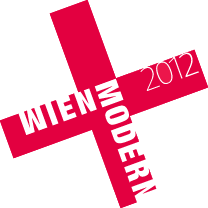
In contrast to the relative youth of Sound, Wien Modern, which runs from 22nd October to 16th November, this year celebrates its 25th anniversary. The birthday is being marked with a series of concerts chosen by Lothar Knessel, one of the festival's founders. Marking his centenary year, there will also be a special focus on the works of John Cage.
0 comments
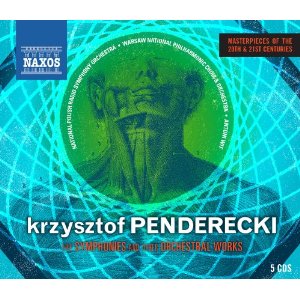
Apart from the excellent Retorica disk reviewed in my last post, there are a number of other new recordings worth checking out this month.
There are five releases on Naxos. The survey of the symphonies of Maxwell Davies under the baton of the composer continues with the issue of his classically proportioned Fourth and the single movement Fifth, played by the orchestras for which the works were originally written: the Scottish Chamber Orchestra and the Philharmonia respectively. In a similar vein, Antoni Wit and the Warsaw Philharmonic and Choir continue their increasingly impressive survey of the music of Penderecki with the release of the boxed set of Symphonies 1-5, 7 and 8 (No. 6, I believe, is still being written) and a disk of choral/orchestral music: Hymne an den heiligen Adalbert, Song of Cherubim, Canticum Canticorum Salomonis, Kosmogonia and Strophen.
In the American Classics series there is a recording of music by Claude Baker conducted by Leonard Slatkin and Hans Vonk with the Saint Louis Symphony Orchestra. The programme consists of The Glass Bead Game, Awakening the Winds, Shadows: 4 Dirges-Nocturnes and The Mystic Trumpeter. I don't know the composer but, having dipped into the disk on Spotify, I can say that the music is fascinatingly mercurial and atmospheric. Well worth a listen. Atmospheric, but in a different way, would also be a good description of Vivian Fung's Violin Concerto, Glimpses and Piano Concerto Dreamscapes with the Metropolis Ensemble. Here the effect is an intelligent mix of East meets West via Gamelan and John Cage prepared piano. Finally, there is a new disk of music for wind band that comprises Chen Yi's Dragon Rhyme, Kurt Weill's Violin Concerto and Jennifer Higdon's Soprano Saxophone Concerto. It is worth checking out even if you're not a fan of the genre, since the composers on the disk admirably exploit the range of which this type of instrumental group is capable.
Apart from Retorica, there are also two exciting new releases on NMC. The first is an all-Knussen programme consisting of Choral, Autumnal, the Whitman Settings, Secret Psalm and Prayer Bell with BCMG and the BBC Symphony Orchestra under the baton of the composer. The disk, sadly, doesn't seem to be on Spotify, so I've been unable to check it out properly. Little tasters are, however, available on the NMC website. The second is a disk of music by Tansy Davies entitled Spine, including the substantial works Iris, Falling Angel and the five movement Loopholes and Lynchpins for piano. Those who familiar with her music will know what to expect - urban but urbane: grungy but sophisticated - for those who don't, this is a good place to start, even if the disk Troubairitz on Nonclassical might be more immediately accessible. Also on Nonclassical, but this time only just released, is Cello Multitracks, featuring the music of Gabriel Prokofiev played by cellist Peter Gregson. Don't forget, finally, to check out the 20x12 page on NMC. Now the Olympics are over the project is drawing to an end, but it is perhaps even more compelling now the full range of works can be experienced.
0 comments
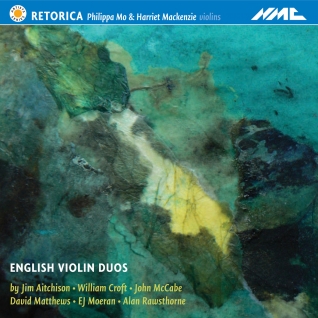
If a programme of music for two violins does not sound like a very appealing prospect, check out Retorica's debut disk, just released on NMC. Violinists Harriet Mackenzie and Philippa Mo have made it something of a mission to bring this little-known repertoire to a wider audience. Even the name of their duo - the Italian feminine form of the word rhetoric - is a reflection of this: just as rhetoric could be said to be artful persuasion in speech, they seek to do the same through their playing. They succeed here by the oratorical bucket-load.
The all-English programme consists of: Jim Aithison's Syruw: Five Kazakh Tableaux, John McCabe's Spielend, Moeran's Sonata for two violins, William Croft's Sonata IV Op. 3 No. 4, David Matthews' Eight Duos, and Alan Rawsthorne's Theme and Variations. It is a well thought-out programme; many of the pieces have a distinct feeling of place, especially by their link to the English pastoral tradition (or in some cases their reaction against it). The Croft, placed mid-programme, in itself a lovely piece, also acts as a clever amuse oreilles before we return to the twentieth-century for the last two works. It also ends with the same lilting rhythms with which the Matthews begins, providing a nice sense of connectivity.
There is a strong pictorial element in many of these works, none more than the first on the disk, Jim Aitchison's Syruw. The composer has long forged connections with the art world, and this piece was designed to be performed with an exhibition that explored Kazakh life and textiles. It consists of a series of delightful and expertly-realised vignettes, from the stillness of the opening, whose little disturbances presage the gentle breeze of the second movement through to 'an exaggerated tale', which seems capture a storyteller in the very act. The Matthews has a similarly visual feel. There is a sense of connectedness between some of the movements, especially in the emphasis on the pastoral and, in the sixth movement entitled 'Contra-Pastoral', its urban equivalent. The whole can also, however, be understood as a series of hors d'oeuvres-like 'moments', each element entire unto itself, but much more satisfying when consumed together.
The other three twentieth-century works on the disk use more abstract structures. In the case of the Rawsthorne this is a closely argued theme and variations, though the emphasis on short movements provides a not dissimilar feeling to the Aitchison and Matthews. There is no doubting the fact, however, that this was intended as a much more serious work, the theme of the opening being skilfully and inventively manipulated throughout, with the final movement recapitulating some of the early variations in order to bring the piece to a satisfyingly cogent close. Spielend, the German word for 'playing', by John McCabe is based upon the idea of the musicians 'playing their themes against each other and playing with the musical material.' The thirteen-minute, single-movement work, begins with exhilaratingly spirited hocketing interspersed with flourishes. It is followed by a long central section that explores two reminiscences of the Violin Sonata of Poulenc before returning to the vigour of the opening. Moeran's Sonata for Two Violins is the most traditional of the twentieth-century works on the disk. The influence of English folksong is everywhere imprinted on the music, though his frequent diversions into more adventurous harmonic territory avoids the 'cow-pat' element of which many of his contemporaries were guilty. This is especially evident in the final movement in which, after 12 straightforward passacaglia statements, the music is allowed to roam more freely.
What is especially striking about the pieces on this disk is that, perhaps because the limited resources force the composers to make every note count, each has a structural tautness that facilitates rapid engagement with the listener. This is not to say the composers give away everything too quickly; far from it, this is music that challenges and rewards repeated hearings. The other extraordinary quality of these works is the way in which each composer has made limited resources sound rich and even symphonic. In this they are aided by the brilliant performances of Mackenzie and Mo. It is clear that they not only understand the subtleties of the music they are playing but they want to 'wow' you into loving it as much as they do. In this they totally succeed. The recording too strikes an excellent balance: it is both intimate but with sufficient acoustic spaciousness for the music to feel full.
0 comments
Having written a eulogy to the music of William Mathias not many weeks ago, I managed to forget to mention the upcoming North Wales International Music Festival, which was founded by the composer. It runs from the 22nd-29th September and focuses on more popular contemporary music, making a special feature of the works of Karl Jenkins and royal composer Paul Mealor. The twentieth anniversary of the composer’s death will be marked by performances of his Anniversary Dances and Let the People Praise Thee O God. His daughter, Rhiannon Mathias, will give the festival Eucharist address on 23rd September.
A heads-up also for Ultima, the Oslo Contemporary Music Festival, which runs from 6th-15th September. The introduction to the festival from Director Mars Petter Hagen makes a virtue out of pointing out that there is no theme, but instead links will become clear as the festival unfolds: ‘whether it is in the intervals, between the concerts, at the fragile acoustic micro level in a newly composed and never performed piece, in a brutal, musical collision, or somewhere totally different.’ That may sound a bit nebulous, but a quick glance at the programme, here, reveals a very wide range of interesting concerts.
On Septermber 19th, finally, the BE OPEN Sound Portal arrives at Trafalgar Square as part of the 2012 London Design Festival: ‘An alien black, rubberised structure will be home to finely-tuned audio technologies aimed at delivering pure acoustic experiences to visitors in the middle of Trafalgar Square.’ It will also play host to musicians and sonic artists who have been commissioned to produce new works in the space. More information is available via SaM.
0 comments

There are several festivals that feature new music in September. I’ve included a selection of concerts from them in my monthly round-up on CT's concert page. As always, however, a more complete programme can be found by browsing individual festival websites: the Warsaw Festival of Contemporary Music (16th-24th September); the Festival de Música de Alicante (21st-29th September); Musikfest Berlin (31st August-18th September); and Beethovenfest, Bonn (7th September-7th October). I should also make special mention of the Presteigne Festival, which I forgot last month. Whilst it started on 23rd August, it still has a few days left to run. There is much left to enjoy. Tomorrow, for example, there is the chance to hear Sally Beamish’s String Quartet no. 2 ‘Opus California’ and the world première of Michael Berkeley’s Oboe Quintet. The festival’s final concert on 28th August contains Paul Patterson’s Allusions for two violins and string orchestra and the world première of the revised version of Sally Beamish’s No, I’m not afraid.
Of the other individual concerts, Fish Music (see photo), taking place in Plymouth on 13th September, especially caught my eye. It comprises a sound installation where fish in an aquarium become musical notes. Their position in relation to a stave placed in front of them is interpreted by improvising musicians. Whilst its success no doubt relies more upon the skill of the performers than the position of the fish, the concept is a fascinating one; I imagine the combination of the hypnotic movement of fish and music is felicitous indeed.
0 comments
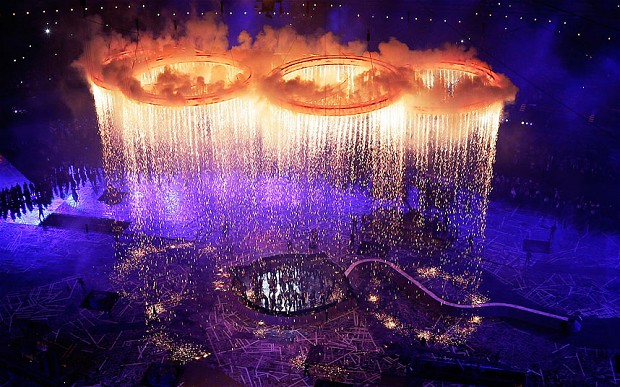
Okay, I admit it: hosting the Olympics was not such a bad idea after all. As I've watched I have found myself whooping, shouting, crying with joy and often turning the television off because I can't take the stress. This is strange, since I've not much more than a passing interest in sport. Granted, I enjoyed seeing Andy Murray avenge his defeat at the hands of Roger Federer, and it's been thrilling to see the cyclists and rowers perform so brilliantly. Maybe, however, it's because the spirit of the Olympics, especially in the journey athletes have to make in order to achieve mastery, is something with which musicians can connect. Music, like sport, demands sacrifice.
New CD Releases
The Olympics continue to be a source of inspiration this month for composers taking part in the 20x12 project. There are three new tracks available on NMC: Aidan O'Rourke's jauntily minimalist TAT-1, inspired by the first transatlantic telephone cable; the astringent and powerful mini-opera Our Day by Conor Mitchell, set against the backdrop of events in Northern Ireland in 1972; and Oliver Searle's mercurial Technophobia, which brings together conventional and unconventional instruments played by young disabled musicians and their peers.
Elsewhere, as musicians concentrate their efforts on the concert hall, there are only a few new recordings. The music of Catalan composer Xavier Montsalvatge (1912-2002) features in two releases. There is a collection of his music for two pianos - Barcelona Blues, Tres Divertimentos, Sum Vermis and 5 Invocations al Crucificado - on Naxos; and Partita 1958, Cinco Canciones Negras, the premiere recording of Calidoscopi Simfonic and Sinfonia de Requiem on Chandos. Described by Aaron Copland as 'The Messiaen Monster', the Turangalila-Symphonie, now acknowledged as one of the great works of the twentieth century, receives a new recording with Juanjo Mena and the Bergen Philharmonic Orchestra on Hyperion. Warner Classics, finally, have released a very enticing 6 CD collection featuring pianist Pierre-Laurent Aimard playing music by Debussy, Ives, Messiaen, Ravel, Carter, Boulez, Beethoven and Liszt.
BBC iPlayer
If you missed the BBC Proms over the last week, I thoroughly recommend picking up the world premieres of James MacMillan's Credo and Charlotte Bray's At the Speed of Stillness on BBC iPlayer (follow my links). Some may find the MacMillan difuse, but there is no doubting his ability to make the familiar - both in terms of raw musical language and established forms - seem excitingly new. The Bray, in contrast, showed commendable focus. Other works still available on iPlayer as I write include Knussen's Symphony No. 2 with the BBC Philharmonic under Noseda and the UK premieres of Langgaard's Symphony No. 11 Ixion and Gudmundsen-Holmgreen's Incontri played by BBC Symphony Orchestra under Dausgaard.
Embedded
A quick reminder to finish. For those interested in Sound and Music's excellent Embedded programme, there are still a few days left to apply. There are three calls: no.w.here, an organisation based in Tower Hamlets that combines film production alongside critical dialogue about contemporary image making; Music Hackspace, a platform that supports the development of innovative new projects using new technologies; and BBSO, which offers a year-long partnership to write new works of up to 12 minutes for symphony orchestra. The deadline for these calls is August 13th. More details are available on the Sound and Music website.
0 comments
1 | ... | 24 | 25 | 26 | 27 | 28 |
|
Concert Listings Today & Tomorrow:
|